Varuthini Ekadashi, an auspicious observance in the Hindu lunar calendar, falls on Thursday, April 24th . This sacred occasion, dedicated to the veneration of Lord Vishnu, holds immense spiritual significance for devotees seeking divine grace, karmic purification, and ultimate liberation. Occurring on the Krishna Paksha Ekadashi of the Vaishakha month, Varuthini Ekadashi is revered as a day of stringent fasting, devout prayers, and self-discipline, guiding the faithful toward inner transformation and spiritual upliftment.
According to sacred Hindu scriptures, on this Ekadashi Lord Vishnu assumed the enchanting form of an Apsara named Varuthini to retrieve the Amrit Kalash (nectar of immortality) from the grasp of the Asuras (demons). Through divine illusion ( Maya ), Bhagwan Vishnu successfully ensured that the celestial nectar remained in the possession of the Devas, preserving cosmic balance and righteousness ( Dharma ). This legend highlights the protective and transformative power of Varuthini Ekadashi, symbolizing the triumph of divine wisdom over material desires, the shielding grace of Bhagwan Vishnu, and the ultimate path toward liberation ( Moksha ).
Significance & Importance of Varuthini Ekadashi
Varuthini Ekadashi, an esteemed observance in the Hindu tradition, is a day imbued with profound spiritual, philosophical, and karmic significance. It is regarded as one of the most powerful Ekadashis of the year, bestowing divine protection ( Varuthini meaning “shielded” or “protected”) upon those who undertake its sacred observance with unwavering faith. This auspicious day, falling on the 11th day of the Krishna Paksha (waning phase of the moon) in the Vaishakha month, is not merely a ritualistic fast but an opportunity for deep introspection, self-discipline, and inner transformation. It is a divine call to renounce material entanglements and immerse oneself in the boundless grace of Bhagwan Vishnu, the eternal protector and sustainer of the cosmos.
The Mystical Essence of Varuthini Ekadashi: A Karmic Purification
The significance of Varuthini Ekadashi extends far beyond physical fasting and abstinence; it is deeply rooted in the purification of karma and the release of negative samskaras (impressions of past actions). According to the sacred scriptures, observing this Ekadashi diligently washes away the gravest sins, including those that bind the soul to suffering across lifetimes. The Bhavishya Purana and Padma Purana extol the merits of this Ekadashi, stating that it grants liberation even to those burdened with immense karmic debts. It is believed that the observance of this fast has the potency to nullify sins committed knowingly or unknowingly, lifting the veil of ignorance that obscures one’s spiritual vision.
Furthermore, Varuthini Ekadashi is associated with bestowing divine grace upon rulers, warriors, and seekers of righteousness, ensuring their success in worldly duties while shielding them from adversities. In ancient times, kings and noble warriors observed this Ekadashi to seek divine favor for victory in battles—not merely external wars but the inner battles of the soul against pride, attachment, and delusion. By surrendering to Bhagwan Vishnu, the supreme guardian, one is enveloped in His cosmic protection, securing peace, prosperity, and ultimate liberation.
The Path to Moksha: Transcending the Cycle of Birth and Death
Hindu philosophy emphasizes that human life is a rare and precious opportunity to attain moksha (liberation). The observance of Varuthini Ekadashi serves as a catalyst for transcending the ceaseless cycle of birth and rebirth ( samsara ). Those who observe this fast with sincere devotion are believed to break free from the bondage of material existence, attaining the eternal abode of Bhagwan Vishnu, known as Vaikuntha.
The fast itself is symbolic of detachment from worldly pleasures, demonstrating the seeker’s commitment to self-restraint and divine contemplation. Abstaining from food, indulgences, and negative thoughts allows the mind to become serene, creating a heightened receptivity to divine vibrations. Scriptures proclaim that the virtues attained through observing Varuthini Ekadashi surpass even the rewards of performing grand yajñas (sacrificial rituals) and charitable acts. It is said that those who sincerely observe this Ekadashi with devotion attain not only material prosperity in this life but also an auspicious rebirth or direct liberation into Vishnu’s divine realm.
The Transformation of the Soul: Victory Over Inner Weaknesses
The essence of Varuthini Ekadashi is the spiritual transformation it facilitates, enabling devotees to conquer their inner weaknesses. The name Varuthini , meaning “protected,” not only refers to Bhagwan Vishnu’s divine safeguard but also symbolizes the inner armor one cultivates through spiritual discipline. This day is an opportunity to subdue negative tendencies such as anger, greed, arrogance, and ignorance, replacing them with virtues of patience, humility, compassion, and wisdom.
Through fasting, prayer, and meditation, the mind is purified, and the devotee develops unwavering faith in Bhagwan Vishnu. This faith acts as a guiding force, enabling one to navigate the storms of life with resilience and clarity. Just as a warrior dons armor before battle, a devotee who observes Varuthini Ekadashi fortifies their spirit, ensuring they remain unaffected by worldly distractions and adversities.
Divine Blessings and the Importance of Surrender
One of the most significant teachings of Varuthini Ekadashi is the power of surrender ( śaraṇāgati ). The devotee acknowledges that true success—whether in worldly endeavors or spiritual pursuits—comes not merely through personal effort but through divine grace. Bhagwan Vishnu, the cosmic preserver, removes obstacles from the devotee’s path, guiding them toward righteousness and fulfillment.
This surrender does not signify weakness but rather the highest form of wisdom—understanding that the supreme will governs all aspects of life. Through surrender, the devotee relinquishes ego-driven struggles and embraces divine guidance, leading to profound inner peace and unwavering confidence. Those who observe this Ekadashi with a heart full of devotion experience an immense sense of security, knowing that they are under Bhagwan Vishnu’s eternal protection.
By observing Varuthini Ekadashi with pure intent and devotion, one steps closer to liberation, enveloped in the divine shield of Bhagwan Vishnu’s grace. It is a day that reaffirms the eternal truth that the soul’s highest purpose is to transcend worldly attachments and merge with the supreme reality. In this sacred observance lies the key to attaining divine bliss, inner peace, and the ultimate triumph of the soul.
Story behind Varuthini Ekadashi Festival
In the ancient city of Bhadravati, nestled along the sacred banks of the Saraswati River, ruled a noble and virtuous king named Dyutiman of the illustrious Chandravanshi dynasty. Known for his wisdom, piety, and just governance, King Dyutiman ensured that his kingdom flourished under the principles of dharma (righteousness) and divine reverence.
Among his devoted subjects lived a prosperous and charitable merchant named Dhanapala, whose wealth knew no bounds. Yet, his true richness was found not in gold or jewels but in his unwavering devotion to Bhagwan Vishnu. He spent his life in seva (selfless service), distributing food grains, offering alms, and uplifting the people of Bhadravati through acts of kindness. Blessed with five sons—Sumana, Sadbuddhi, Medhavi, Sukriti, and Dhrishthabuddhi—Dhanapala hoped that each would uphold the family’s legacy of righteousness.
Unlike his brothers, Dhrishthabuddhi was drawn to a life of indulgence and vice. Ignoring the virtues taught by his father, he squandered his fortune on sinful pleasures—gambling recklessly, associating with immoral company, and engaging in illicit acts that brought dishonor to his family. His insatiable desire for material pleasure and sensual gratification blinded him to the consequences of his actions.
Dhanapala, despite his boundless patience, could no longer tolerate his son’s disgraceful behavior. With a heavy heart, he cast Dhrishthabuddhi out of the house, severing all ties with his wayward son. But Dhrishthabuddhi, instead of reforming, continued his wicked ways. With no wealth to sustain his extravagant lifestyle, his so-called companions abandoned him, and he was left alone in destitution.
Desperation led him to commit theft and deception, preying upon the very citizens his father had once nurtured. His crimes did not go unnoticed, and before long, he was captured by the King’s guards. They whipped him mercilessly, paraded him through the streets as a lesson to others, and ultimately banished him from the kingdom, ensuring he could never return.
Now an outcast, Dhrishthabuddhi wandered aimlessly through dense forests, driven by hunger and despair. He became nothing more than a savage—slaughtering animals to sustain himself, feeding on raw flesh, and enduring ceaseless suffering. His once-glorious lineage was now a distant memory, lost beneath layers of sin and degradation.
Time passed, and his agony knew no end. But fate had not abandoned him completely. One day, during the auspicious Vaishakha month, while stumbling through the forest, he arrived at the serene ashram of Sage Kaundinya, a revered rishi known for his divine wisdom and compassion.
At that very moment, Kaundinya Muni had just completed his sacred bath in the holy waters of the Ganges. As he emerged, the droplets of the sacred river still glistened upon his body. By divine will, a few of these blessed droplets fell upon Dhrishthabuddhi. In an instant, something miraculous occurred—his mind, once clouded by sin and darkness, began to clear. A wave of realization and remorse swept over him as he became aware of the depth of his transgressions.
Overcome with guilt and humility, he fell to the feet of Kaundinya Muni, his hands folded in reverence. With tears streaming down his face, he begged,
“O great sage, I have led a wretched life, drowning in sin and blinded by ignorance. I have wronged my father, my family, and the laws of dharma. My soul is burdened with the weight of my misdeeds. Please, O revered one, guide me—show me the path to liberation. How may I atone for my sins and be freed from this endless suffering?”
The sage, seeing the sincerity of his repentance, spoke kindly, “O child, there is but one way for you to wash away your sins and attain redemption. The divine observance of Mohini Ekadashi, which is soon approaching, has the power to cleanse even the most grievous sins. By fasting and surrendering to Bhagwan Vishnu with utmost devotion, you shall be absolved of your past misdeeds and regain your lost virtues.”
With newfound determination, Dhrishthabuddhi observed Mohini Ekadashi with unwavering faith. He followed every instruction given by Sage Kaundinya, abstaining from all food and material desires, spending the entire day in meditation, prayer, and chanting the holy names of Bhagwan Vishnu.
As dawn broke on Dwadashi (the day after Ekadashi), a divine transformation took place. The sins that had weighed down his soul for countless lifetimes were burned away by the power of his devotion. He was no longer the sinful, fallen outcast—he had emerged anew, purified and radiant with divine grace.
In due course, having devoted his life to selfless service and unwavering bhakti (devotion), Dhrishthabuddhi attained the supreme blessing of Bhagwan Vishnu. At the end of his life, a celestial chariot descended from Vaikuntha, and Vishnu’s divine messengers (Vishnudutas) came to escort him to the eternal abode of the Lord.
Thus, the sinner became a saint, and the lost soul was redeemed through the mercy of Mohini Ekadashi.
Concluding the sacred tale, Bhagwan Krishna revealed its significance to King Yudhishthira, saying,
“O noble king, such is the unparalleled glory of Ekadashi Vrat. Even the mere recitation of this story, or listening to its virtues with faith, bestows divine blessings and purifies the soul. Those who observe Mohini Ekadashi with sincerity shall not only attain worldly happiness but will also be liberated from the cycle of birth and death, ultimately reaching my eternal abode.”
The story of Dhrishthabuddhi serves as a timeless testament to the transformative power of Ekadashi fasting and devotion to Bhagwan Vishnu. It teaches that no soul is beyond redemption, and even the most fallen can find their way back to divine grace through sincere repentance, devotion, and surrender to the Lord.
By observing Varuthini Ekadashi with sincerity, devotion, and faith in Bhagwan Vishnu, devotees can overcome hardships, transform their destiny, and attain the ultimate goal of human life—moksha, the eternal liberation from the cycle of birth and death.
Festival Date, Time, Muhurat & Tithi
Varuthini Ekadashi will be observed on Monday, April 13, 2026.
11th day of the Krishna Paksha (waning phase of the moon) in the Vaishakha month of the Hindu lunar calendar.
Key Timings for Varuthini Ekadashi 2026:
Varuthini Ekadashi on Monday, April 13, 2026
On 14 th Apr, Parana Time - 06:54 AM to 08:53 AM
On Parana Day Hari Vasara End Moment - 06:54 AM
Ekadashi Tithi Begins - 01:16 AM on Apr 13, 2026
Ekadashi Tithi Ends - 01:08 AM on Apr 14, 2026
Note: Sunrise and sunset vary by region and date due to India's geographical diversity. For exact timings, refer to local astronomical data.
How to celebrate Varuthini Ekadashi
To celebrate Varuthini Ekadashi, begin by cleansing your home and creating a pure, sacred environment. Gather all necessary items such as flowers, fruits, incense, a bell, and a picture or idol of Lord Vishnu. On the day of Ekadashi, observe a fast by refraining from consuming food and water. This fast typically lasts for 24 hours, from the evening of the previous day until the following day, though some may choose to do a partial fast by avoiding grains and consuming fruits or nuts.
Start the day early, preferably before sunrise, and take a bath to purify yourself. Light a lamp or incense and offer prayers to Lord Vishnu. Chant his sacred mantras, such as 'Om Namo Bhagavate Vasudevaya,' to invoke his divine presence. Devote time throughout the day to meditating and focusing on the Lord, performing aarti and singing bhajans if possible.
In the evening, break the fast, preferably after sunrise the next day, in the prescribed time. You may choose to consume food that aligns with the fasting guidelines, such as fruits, nuts, or other permissible items. By observing this fast with sincerity and devotion, you can seek the divine blessings of Lord Vishnu for protection and spiritual growth.
Varuthini Ekadashi Festival Puja Vidhi (Puja Procedure)
The puja rituals of Varuthini Ekadashi are detailed in ancient Hindu scriptures and were revealed by Lord Sri Krishna in response to a question posed by Yudhishthira, one of the Pandava brothers from the Mahabharata.
The prescribed Puja Vidhi is as follows:
- On the day before Varuthini Ekadashi, which falls on the 10th day of the Krishna Paksha, the individual should cleanse their teeth thoroughly in the afternoon and have their last meal at sunset. The fast begins the next day.
- On the morning of Varuthini Ekadashi, the devotee should resolve to observe the fast with complete devotion. It is recommended to bathe in a river, which is considered the most purifying. If a river is not accessible, bathing in a lake or pond water can also be done.
- While bathing, the person should apply mud to their body while chanting a prayer to Mother Earth: 'O Asvakrante! O Rathakrante! O Vishnukrante! O Vasundhare! O Mrttike!' The translation of this prayer is: 'O Mother Earth! Please cleanse me of all sins accumulated from past lives so that I may attain the divine abode of Lord Vishnu, the Supreme Lord.'
- After the bath, the devotee should worship Lord Govinda with complete dedication. Offer a generous Bhog (food offering) along with flowers and other items of worship. A lamp should be lit in the house to honor the Lord.
- Throughout the day, the devotee should chant or sing praises of Lord Vishnu, remaining in a blissful state during the fast. The fast should be observed with utmost devotion.
- It is recommended to stay awake through the night, maintaining full consciousness. If possible, playing musical instruments during the night can enhance the spiritual atmosphere and please the Lord.
- On the following morning, the devotee should offer charity to Brahmanas, asking them for forgiveness for any inadvertent offenses committed.
- For those who have kept the fast until the next day, the following prayer should be recited: 'O Pundarikaksha, O Lotus-eyed Lord, I now prepare to eat. Please shelter me.'
- After reciting this prayer, the devotee should offer flowers and water at the lotus feet of Lord Vishnu, requesting the Lord to partake of the offering.
- To complete the fast, the devotee should drink the water that has been offered to Lord Vishnu, while chanting the eight-syllable mantra three times. This practice ensures the full benefits of the fast.
- If desired, the devotee can perform fire sacrifices (yajnas) during this sacred occasion. Throughout the day, and until the next morning, the devotee should continue bathing, chanting, singing praises of Lord Vishnu, engaging in acts of devotion, and performing charity.
This sacred observance culminates in complete devotion to Lord Vishnu, bringing purification, divine blessings, and spiritual growth.
Varuthini Ekadashi Puja Mantra
The Varuthini Ekadashi Puja Mantra is recited to invoke the divine blessings of Lord Vishnu on this auspicious day. This mantra is believed to purify the devotee's soul, grant protection, and lead them toward spiritual progress.
Mantra:
'Om Namo Bhagavate Vasudevaya'
This is the most sacred mantra for Lord Vishnu, and it means, 'I bow to Lord Vishnu, the Lord of all beings.'
Varuthini Ekadashi Vrat Vidhi (Fasting Procedure)
To gain the full spiritual benefits of fasting on Ekadashi, the devotee must adhere to the following guidelines, as specified in the ancient texts:
- Bathing: The devotee should take a bath in the morning of Varuthini Ekadashi to purify the body before commencing the fast.
- Dietary Restrictions: Consumption of beans and grains is strictly prohibited on Ekadashi.
- Non-Violence: Killing any living being, including animals, is prohibited on this day.
- Rest and Sleep: Sleeping during the day on Ekadashi and the following day, Dwadashi, is forbidden.
- Avoiding Negative Influences: The devotee must avoid interacting with cheats, frauds, or individuals involved in sinful activities. If such an encounter occurs, the devotee should purify themselves by standing in the sun and gazing at it.
- Celibacy: Sexual activity is strictly prohibited on Ekadashi and Dwadashi.
-
Dwadashi Observances:
On Dwadashi, the devotee should:
Refrain from eating in another person’s house.
Limit themselves to one meal.
Avoid consuming honey and urad dal (black lentil).
Refrain from eating on bell-metal plates or using bell-metal utensils.
Avoid massaging oil on the body. - Interaction with Lower Castes: If a devotee has to speak with someone from a lower caste, they must purify themselves by consuming Tulsi leaves or an Amalaki fruit.
- Breaking the Fast: If the devotee is unable to break the fast on the scheduled Dwadashi day, they should consume water to signify the completion of the fast. Food may be consumed later when convenient.
By following these guidelines, the devotee ensures the fast is observed with purity and devotion, thereby gaining the spiritual rewards associated with the sacred Ekadashi observance.
Varuthini Ekadashi Vrat Katha (Traditional Fasting Story)
The Varuthini Ekadashi Vrat Katha is one of the most revered and powerful fasting stories in Hindu tradition, illustrating the immense benefits of observing the fast with true devotion. The story is widely known for its spiritual and moral teachings, and it is often recited during the observance of Varuthini Ekadashi.
Long ago, there was a righteous and just king named Mandhata, who ruled over the prosperous kingdom of Bhadravati. King Mandhata was known for his deep devotion to Lord Vishnu, and he had a reputation for always striving to protect his people and maintain the kingdom’s prosperity. However, despite his righteous rule, his kingdom was struck by a series of severe misfortunes. There was a prolonged drought, followed by a famine, causing widespread suffering among the citizens. The king was deeply troubled by the plight of his people and sought a way to bring relief to his kingdom.
In his search for a solution, King Mandhata approached a revered sage, Vishnupriya, who was known for his knowledge of divine scriptures and the power of fasting. The sage, upon hearing the king’s woes, told him about the divine significance of Varuthini Ekadashi, which fell on the 11th day of the Krishna Paksha in the month of Vaishakha. The sage explained that observing a fast on this day could remove sins, alleviate suffering, and bring divine protection.
He told the king that by observing the fast of Varuthini Ekadashi with sincerity and devotion, the misfortunes would be removed, and blessings from Lord Vishnu would restore prosperity and peace to the kingdom. The sage also instructed the king to bathe in sacred waters, chant Vishnu's names, and refrain from food and water for the duration of the fast.
King Mandhata, filled with hope and determination, decided to observe the fast with utmost faith. He followed the sage’s instructions carefully, performing the rituals with devotion and keeping his mind focused on Lord Vishnu. He bathed in the sacred river, offered prayers with full sincerity, and fasted for 24 hours, refraining from all physical indulgences.
During the fast, King Mandhata meditated upon the divine form of Lord Vishnu, recited his sacred mantras, and remained in a state of blissful devotion, free from worldly distractions. On the following day, after breaking the fast, he performed acts of charity and gave alms to the Brahmanas, seeking their blessings for the prosperity of his kingdom.
Lord Vishnu, pleased with the king's devotion, appeared before him and blessed him with divine grace. He assured King Mandhata that his kingdom would be restored to its former glory. Soon after, the rains came, the famine ended, and prosperity returned to Bhadravati. The kingdom flourished, and the people rejoiced in the divine blessings they received.
As a result of his devotion to Lord Vishnu, King Mandhata's sins were cleansed, and his heart was filled with divine peace. Not only did the king’s kingdom become prosperous again, but he was also granted spiritual liberation. It is said that he was granted a place in Vaikuntha, Lord Vishnu's divine abode, where he lived eternally in the presence of the Lord.
The Varuthini Ekadashi Vrat Katha carries an important lesson: through sincere devotion, faith in Lord Vishnu, and following the prescribed fast, a person can overcome misfortune, cleanse their sins, and receive divine blessings. This story emphasizes that no matter how difficult life may seem, with devotion, purity, and faith in the divine, one can find redemption and ultimate peace.
The Varuthini Ekadashi fast is considered one of the most powerful means to seek spiritual enlightenment and divine protection, just as King Mandhata was blessed with peace, prosperity, and eternal liberation through his dedication and the grace of Lord Vishnu.
Puja Utensils, Essentials
Rudra Centre brings an extensive collection of Puja Articles which caters to all that is required for daily and special Puja Vidhis. We offer variants of designs and sizes in each category. The list includes handcrafted Puja Mandirs, Puja Pedestals, offering Bowls, Panchpatra, intricately carved Puja Thalis, Abhishek Vessels, in different materials, Pure Silver/German Silver articles like Kalash, set of Shodash Upachara and Several other Puja Articles, which we deliver at your doorstep.
Shaligram Shila
Collection of sacred, rare and authentic Shaligram Shilas. Shaligrams represent Lord Vishnu and are naturally formed and found only in the Gandaki Kali River in Nepal. Shaligrams with different marking signifying various forms of Lord Hari, worshipping them bestows protection, wealth, good health, pleasure and spiritual progress.
Siddh Meru Vishnu Yantra 4 inches
This powerful Yantra is magnificently crafted in elevated three dimensional form in pure copper with antique finish. This Yantra is designed as per authentic texts with accurate geometry of steps in shape of 12 petal lotus followed by circle and again a lotus with 8 petals and circle followed by two reversed triangles forming a star and ultimately leading to focal point for the convergence of the individual soul with creative energy of Lord Vishnu.
Vishnu Puja
The purpose of performing the Anant Vishnu Puja is to attain blessing of Bhagwan Anant Vishnu and to blessed by materialistic comforts, peace of mind and happiness. This divine form of Bhagwan Vishnu is also worshipped to regain lost wealth. The Vaishnavites, revere Him as the Supreme deity, one who has no beginning and no end.
The benefits of performing the Anant Vishnu puja is as follows:
- Offers divine blessings of Bhagwan Vishnu
- Offers divine blessings of Goddess Lakshmi
- Invites riches and prosperity
- Offers success and growth in all undertakings
- Helps to recover lost wealth
- Offers overall abundance
- Offers contentment and bliss
- Offers protection from negative energies and evil spirits
- Fills life with happiness
Rudra Centre Puja Services is the oldest and most trusted Online Puja Services provider in the world. Over 20 years we have organized Yagnas, Pujas, Homas and Kathas like Ati Rudra Mahayajna, Sahasra Chandi Homa, Akhand Ramayan Paath, Shiva Maha Puran Katha, 4 Prahar Mahashivratri Mahapuja with teams of 100’s of curated priests for the benefit of mankind and our global clientele.
Conclusion
In conclusion, Varuthini Ekadashi is a deeply revered festival in Hinduism that holds immense spiritual significance for those seeking to attain divine grace and liberation. Observing the fast on this sacred day offers an opportunity for devotees to purify their hearts, cleanse their past sins, and seek the protection and blessings of Lord Vishnu. This fast is not just about abstaining from food and water, but about immersing oneself in prayer, devotion, and spiritual discipline.
The essence of Varuthini Ekadashi lies in its power to transform the lives of those who observe it with sincerity. The day encourages self-reflection, a commitment to righteousness, and a deeper connection to the divine. By following the prescribed rituals with unwavering faith, devotees can remove obstacles in their path, alleviate negative karmic influences, and experience profound spiritual growth.
Through the fast, one is reminded of the importance of surrendering to the will of the divine, fostering humility, and dedicating oneself to the service of Lord Vishnu. The blessings gained from observing Varuthini Ekadashi extend beyond material prosperity, leading to spiritual enlightenment and ultimate liberation from the cycle of birth and death. This sacred festival serves as a powerful reminder that true peace, protection, and prosperity are attained through devotion, purity, and unwavering faith in the divine.


-in-Astrology.jpg)
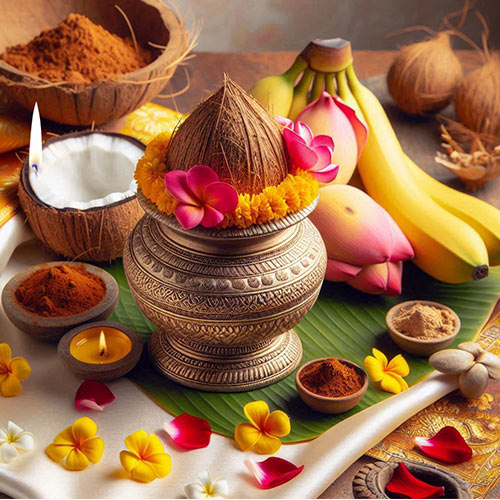
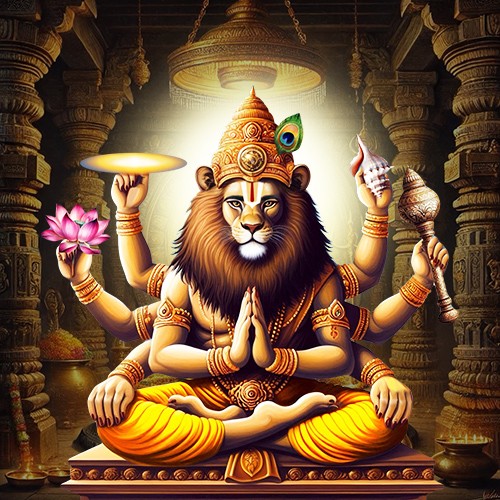
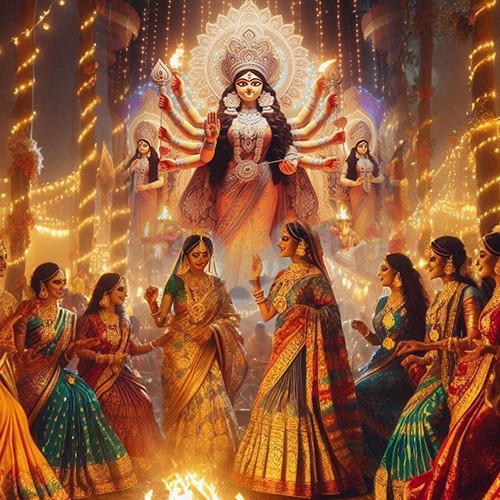
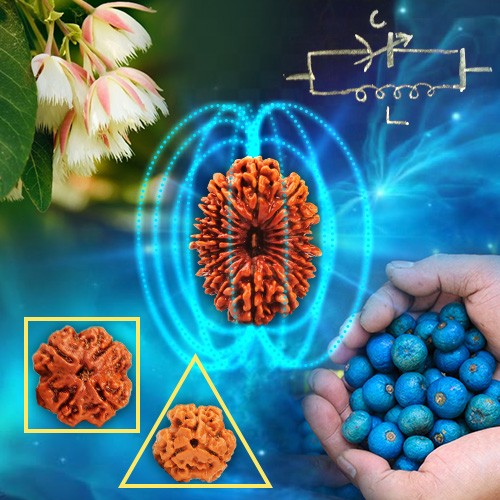

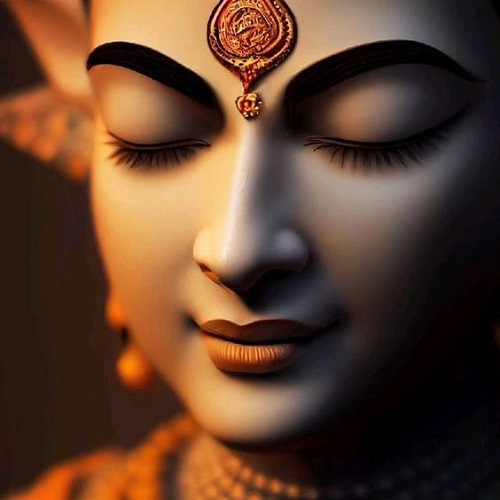
.jpg)
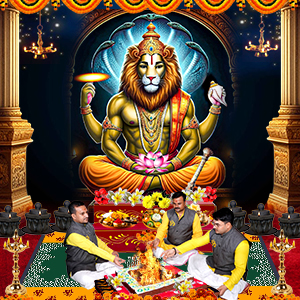
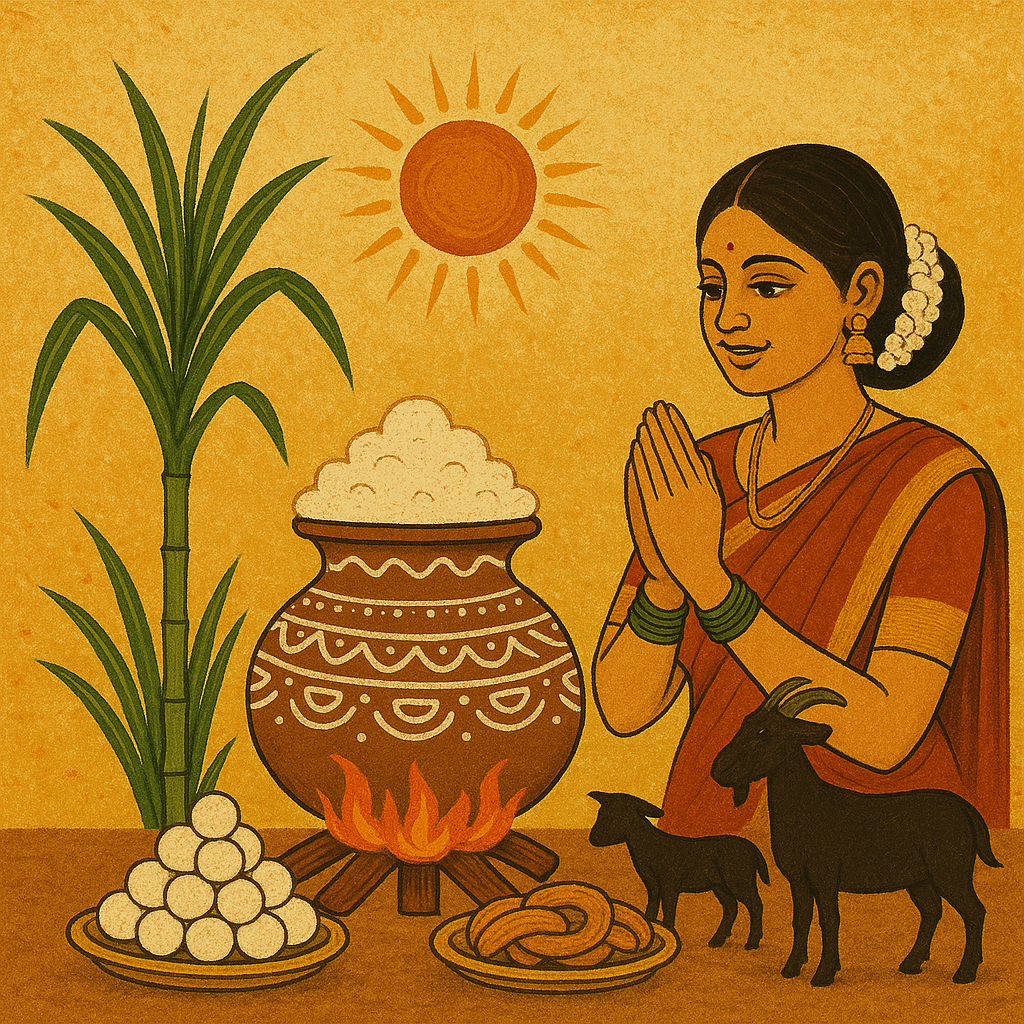

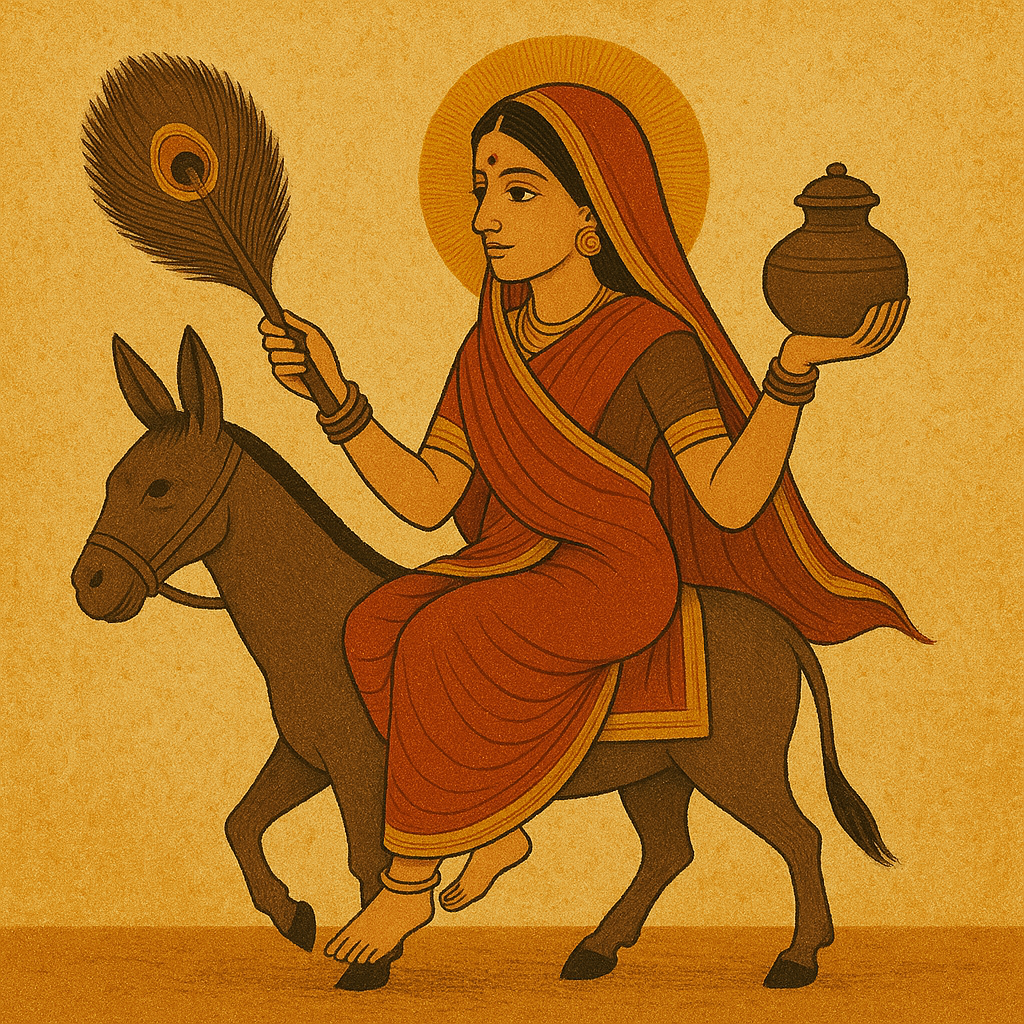
Comments 0
Leave your thought here